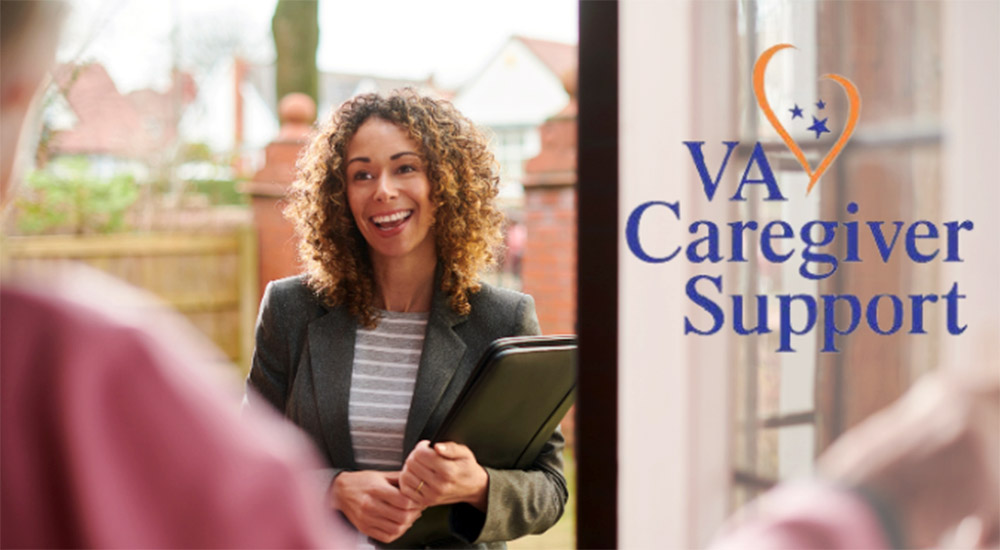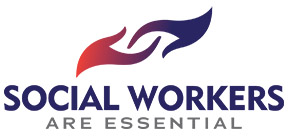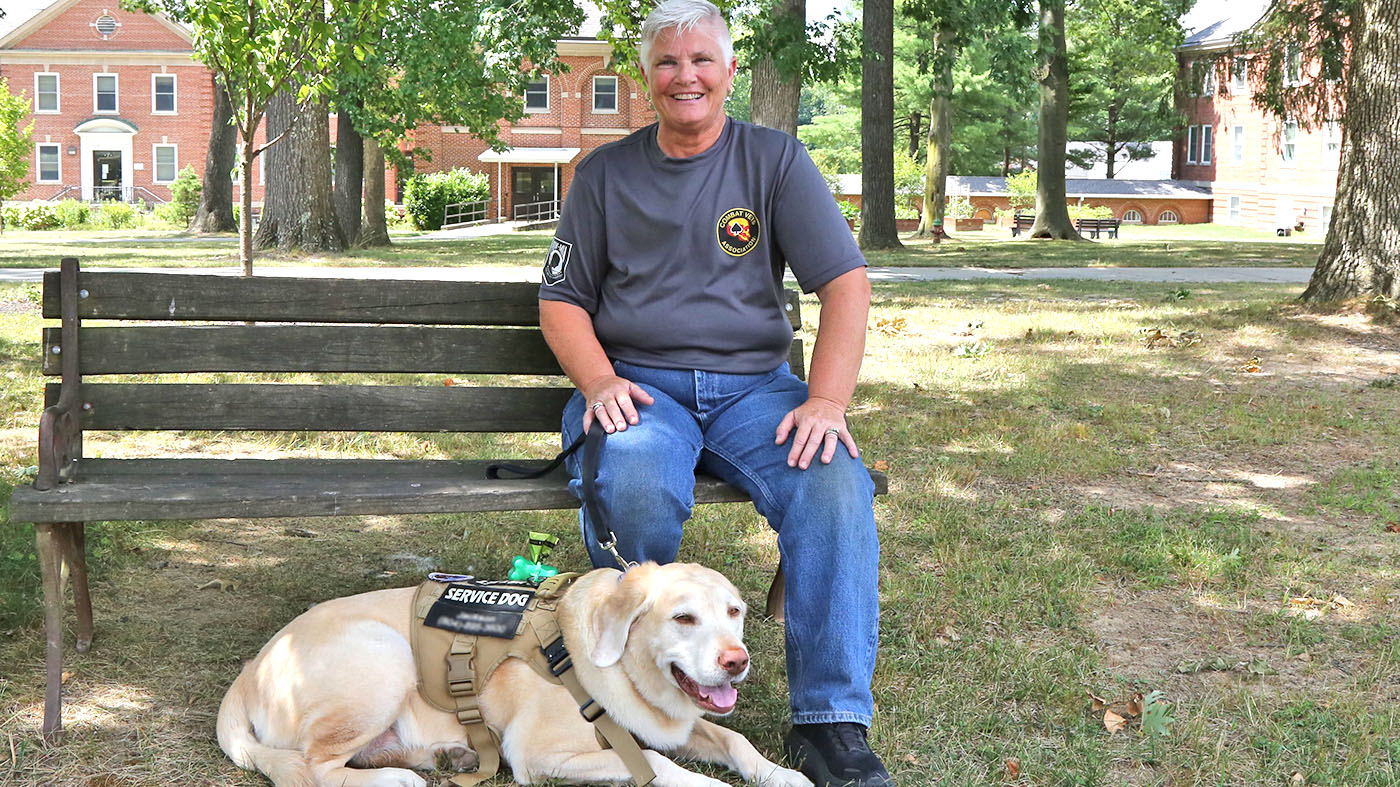Social workers play a monumental role in how VA supports Veterans’ caregivers. In response to the COVID-19 pandemic, VA caregiver teams have helped mitigate any lapse in care by leveraging telehealth and home visits to conduct essential check-ins with caregivers and Veterans to identify evolving needs.
For Carol Waney, a Veteran’s caregiver who resides in Niagara Falls, NY, Caregiver Support Program social workers provided her a window of opportunity to learn about caregiver resources. “I can’t say enough about how great the program is, especially the social workers,” she said. “The social workers connected me to services before I could even think about what we need. And they’re always there if I need to talk.”
If caregivers need a listening ear, they can turn to CSP social workers through the Caregivers Support Line (CSL) – VA Caregiver Support. The CSL is a toll-free phone line available to help caregivers navigate available resources, understand eligibility for CSP services, and even provide emotional support counseling if desired.
Danielle Farrell is a licensed master social worker who provides counseling support. Farrell previously supported the Veteran’s Crisis Line. She says the best part of her role can help caregivers in their time of need: “Sometimes caregivers need something as simple as having someone to talk to,” she said. “I feel fortunate that I am in a position where I can help callers get connected with the resources to support their loved ones while also addressing their own self-care needs.”
Work around the clock
Social workers also serve as CSP program managers who shape how CSP provides caregiver services in each VA medical center. Most recently, these social workers have worked around the clock to prepare CSP to expand the Program of Comprehensive Assistance for Family Caregivers, a CSP service available to caregivers of eligible Veterans.
With over 22,000 Veterans enrolled in PCAFC, social workers help both caregivers and Veterans identify their evolving needs to customize a plan of action.
CSP social workers work in VA medical centers. The social workers can connect caregivers to valuable services. They have leveraged their expertise to enhance resources throughout the Program of General Caregiver Support Services (PGCSS), which is available to all caregivers of Veterans enrolled in the VA healthcare system.
Social workers ensure success
Thanks to social workers, CSP is standardizing its resources across VA. This will ensure all caregivers have access to the same level of education, support, and community partner resources.
“A tremendous amount of CSP’s success is owed to our social workers. We know they’ll play a critical role in CSP as we push the program to greater heights and allow us to provide resources in a manner that truly caters to the real caregiver experience,” said CSP Executive Director Collen Richardson, Ph.D.
Caregiver Support Program Resources
Annie Caregiver Text Support is VA’s text messaging service that promotes self-care for caregivers. Caregivers need a phone capable of text messaging to enroll.
Building Better Caregivers TM (BBC) is a 6-week online workshop for caregivers of Veterans of all eras. BBC helps caregivers in two key ways. First, it provides training in how to provide better care. Second, it helps caregivers learn how to manage their own emotions, stress and physical health.
Caregiver Education Calls are monthly telephone calls for caregivers with a theme of “Care for the Caregiver.” The topics change monthly, and presentations materials can be found on the CSP website.
Caregiver Support Coordinator (CSC) can link you to essential resources and services available to you, as a caregiver, and to the Veteran. Find your local CSC today.
Caregiver Support Line (CSL) offers support by caring, licensed professionals. The CSL, at 1-855-260-3274, is available toll-free 8 a.m.- 8 p.m. E.T., Monday through Friday.
Caregiver Support Program Website contains tips, tools, videos, and links to resources for caregivers of Veterans of all eras.
Resources for Enhancing All Caregivers Health (REACH VA) Intervention is an evidence-based intervention that is delivered by VA clinical staff to provide individual support to stressed and burdened caregivers of Veterans of all eras.
Ashley Gorbulja-Maldonado, MPH, is a public affairs specialist for the VA Office of Patient Care Services.
Topics in this story
More Stories
Combat Veteran faces the traumatic events of her PTSD during prolonged exposure therapy and looks forward to the days to come.
Bob Jesse Award celebrates the achievements of a VA employee and a team or department that exemplifies innovative practices within VA.
The Medical Foster Home program offers Veterans an alternative to nursing homes.








My husband is 73 years old he will be 74 this year he is a Vietnam war vet that was injured in the war 100% disabled and this program is just now expanding to him I have been filling out for this program for over a year the process is very slow they’ve known for a while that they were going to revamp this program why is the wait so long when we’re in dire need of the resources the VA must do better all the way around even at the medical facilities the mix-up and poor communication has older veterans running in circles and if they don’t have a caregiver that’s on their p’s and q’s they’re lost in the system and frustrated I shouldn’t have to call a cardiology profession in the VA after a surgeon tells me that my husband needs to see a cardiologist before having surgery within the VA to me that would be the surgeon’s job to put that note in but we were called and asked is that very question I should not have to call a pain management specialist for my husband’s bad knees for him to get shots in those knees when his primary care physician knows that his body is riddled with arthritis and with wounds from the war like the two pinch nerves in his back to the point where his Mobility is leaving him the primary care physician should make those
arrangementss these are the kind of hurry up and wait unorganized predicaments that we deal with and as my husband’s caregiver I cannot work because his Mobility has gotten so bad ! Coming from someone that used to work in the management field with the retail industry I made good money now that’s losed money for our house hold to take care of things that need to be taken care of ! I have to care for my husband where are the resources for that! But just like the government the VA has a big problem of getting on here and bragging about themselves before they make sure all their t’s are crossed and their I dotted I just would like to know when will my application process be over with it was turned in October 1st of last year or are you waiting for my husband to pass before we receive these benefits!
Hello, my husband is a 21 year Navy veteran who is disabled since 2016. He suffered hypertension while in the Navy. He has had 5 strokes and 5 heart attacks due to the hypertension and diabetes. He is only 40% disabled in the VA system and I am his wife and caregiver. I am told that he has to be 70% in order to get help. While we lived in Slidell Louisiana he was 60% and when we moved to Louisville, Kentucky they now say he is only 40% disabled. I feel alone and with no help from the VA. I just start receiving pads and pullups for him a month ago. I think it’s so sad that I can’t get any help for him. I even have to pay for his medications at Express Scripts. I have called, sent letters etc. and nothing has been done to help me. I went to Fort Knox for food once. My husband had several honors while serving his country and the government even after he retired.
My husbands social worker was useless. I received no help from her. He was a 23 yr Veitnam veteran, in final stage renal failure. He was coming home for Hospice. She never told me when he was leaving hospital, the transport people sat at our gate for half hour. They were not given any contact information. I was not told he had left hospital. I was told I would be getting an aide 9 hours a week, never called or showed up. Social worker never put in for their service till he was home three days. She never gave them contact info. When he came home he was severely bruised. His right side , from knee to armpit was solid black. The whole side. Hospice asked me what happened. I asked the social worker to find out. Was told no one knew. My husband deserved better.